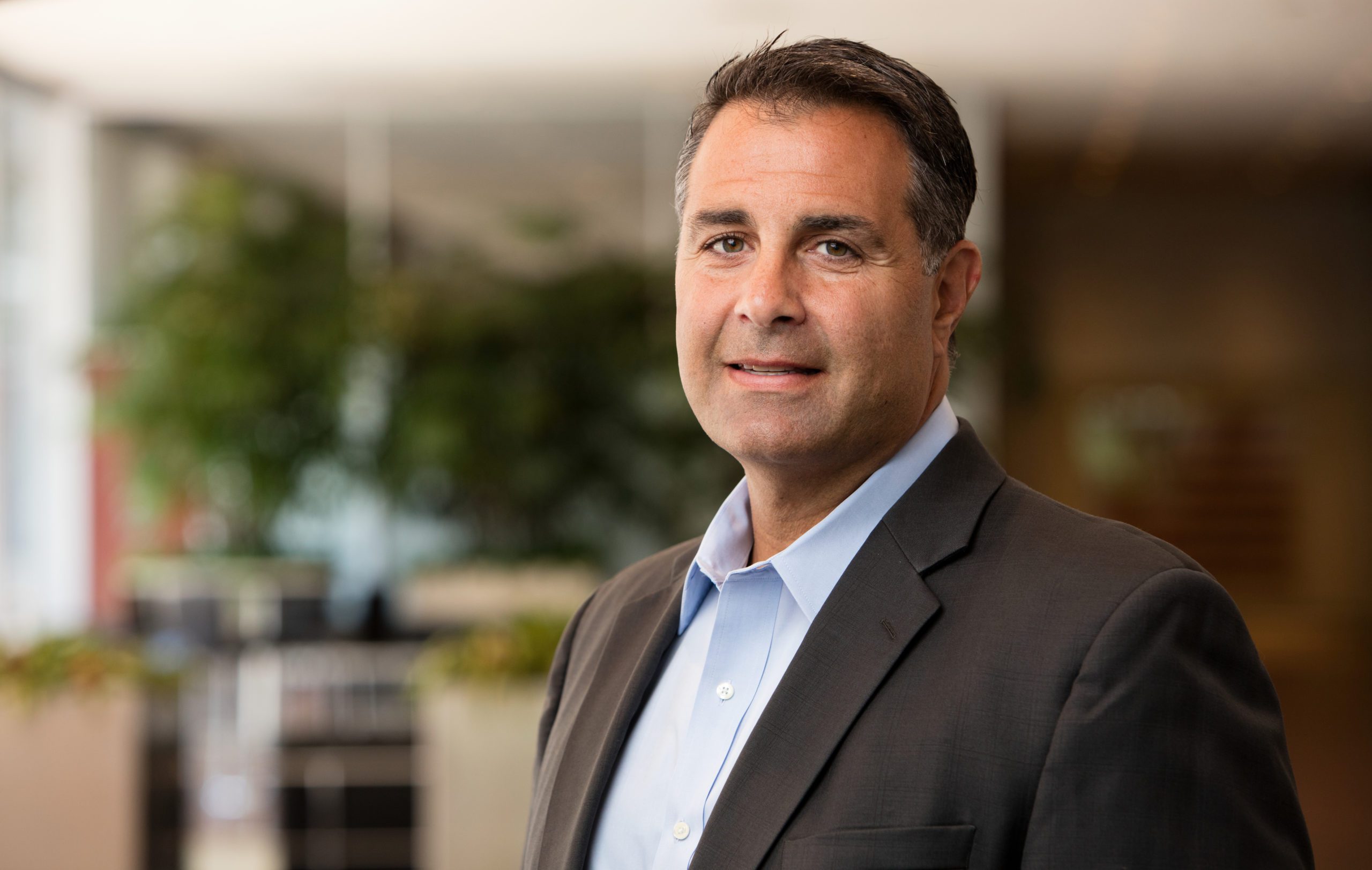Sal Mancuso has been financial chief of a traditional consumer packaged goods company for two years and climbed the ranks at Altria Group over three decades, beginning when the cigarette maker was Philip Morris USA. His ascension culminated in a two-year stint as senior vice president of finance and procurement before Mancuso’s promotion to executive vice president and CFO two years ago.
And yet Mancuso’s approach to executing Altria’s financial strategy and pulling the levers of the CFO position embraces today’s broader expectations of his office as well as the traditional ones. That means dealing in the here-and-now with pressing challenges such as managing inflationary pressures but also extending to a major role in the tobacco company’s significant ESG goals and serving as the executive sponsor for Altria’s employee resource group for Black employees.
“In this day and age, a CFO’s job goes beyond just managing the finances of an organization,” Mancuso told StrategicCFO360.com. “It’s focused a lot on building a culture that can lead to success. And for me, what’s really important—if you think about our long-term vision, which is to responsibly lead the transition of adult smokers to a smoke-free future—in order to do that, we need to have an inclusive culture that engages all our employees, that has a diverse group of employees that are seen and heard so they can contribute to that vision and to success against that vision.
“Also, when you think about the CFO,” Mancuso continued, “the lens of ESG is such an important aspect of how you run a business today and how investors view your success. It’s not just about financial results. They remain important, but also important is the ‘how’ of what you deliver.”
By financial metrics, Richmond, Virginia-based Altria continues to provide the predictability sought by investors in a business whose primary pursuit—selling cigarettes—seems bound to continue to decline but which provides high margins and lush dividends in the meantime.
Altria’s revenues in 2021 were about flat at $26 billion, but earnings per share, when adjusted for special items, rose by nearly 6%. Meanwhile, the company returned more than $8 billion in cash to shareholders last year through dividends and share repurchases, a total that represented the company’s third-largest single-year cash return in history and the largest annual return since 2002.
At the Consumer Analyst Group of New York (CAGNY) conference in February, Mancuso noted that “2020 and 2021 were dynamic years due to the external environment and its effect on smoker behaviors,” noting that that two-year decline rate—when adjusted for volume trends over the longer term—was “3%, well within the range of historic norms.”
And the CFO reaffirmed Altria’s 2022 guidance calling for 4% to 7% growth in EPS from a 2021 adjusted base, with growth this year “weighted toward the second half.” Mancuso also noted Altria’s strong balance sheet and cash generation.
Mancuso is confronting many of the same pressures as other big-company CFOs these days. Fortunately, profit margins are extremely high for Altria—about 50% for its smokable products and 60% for the smokeless lines, which it continues to expand. Moreover, the company’s supply chain is inherently strong, mainly because nearly all of Altria’s tobacco is domestically grown.
“We haven’t had supply-chain disruptions,” Mancuso said. “Our employees in the supply chain, from procurement to manufacturing to operations support to distribution and the sales force, have done an amazing job of identifying potential risks and looking at business-continuity plans, pressure-testing them, and improving on them.”
For Altria’s historical business, rampant inflation has presented new challenges, however.
“We have managed inflation quite well,” Mancuso said. “We pay close attention to it. We do what we can to offset any inflationary pressures through streamlining efficiencies and cost reductions, by partnering with vendors and trying to create win-win partnerships with them so they’re as invested as we are.”
But the impact of higher inflation on smokers themselves is a matter for concern. “You have to think about inflation’s impact not just on our costs but on our consumers,” Mancuso said. “There are some headwinds for the tobacco consumer. Seventy percent of cigarette buying is at convenience stores, so higher gasoline prices are a headwind.
“But there are tailwinds as well: Housing is up and wages are up among a lot of consumers who are in trades, such as electricians and plumbers and construction workers. There’s wage inflation. So our job is to monitor the markets and consumers and then have the levers through revenue growth management that allow us the promotional tools and plans that can be tailored toward individual consumers and individual markets.
“That’s the journey for us. Years ago, it was about adjusting list prices. Fast forward to today, where it’s all about allocation of promotional dollars in effective and efficient ways.”
Of course, another major contrast for Altria from many years ago is its emphasis on trying to wean smokers off tobacco with various smokeless products even as it continues to supply their smoking habit. The sum of Altria’s efforts in this regard, Mancuso argued, make the company a better exemplar about ESG concerns than it might seem at first glance.
“We actually have a really good story to tell,” Mancuso said. “It’s an industry that requires us, as table stakes, to act in a responsible way. We obviously sell a product that comes with social friction and, of course, health risks. So it’s important for us as a company to invest in the reduction of youth access to an adult product like this. It’s important for us to provide transparency related to the product and to act in a responsible manner.
“If the issue an investor has is that we’re a tobacco company, that’s who we are. But we have a story to tell that really focuses on our ability to provide adult smokers with a portfolio of products that offer reduced harm and risk, about our history of reducing youth access and usage, and about continuing to reduce our environmental impact that our company and products have as well as our supply chain.”
To wit, at CAGNY, Altria CEO Billy Gifford said the company’s data show that almost one-third of smokers have tried smoke-free products but only 11% continued to purchase them after five weeks, and only 7% continued after 18 weeks. “These facts indicate that smokers continue to be open to smoke-free products, but many of the products they try fail to meet their needs,” Gifford said. “We believe this is largely due to unsatisfying product experiences or inadequate consumer support during their smoke-free transition process.”
He said he believes Altria, “with our deep understanding of the smoker mindset, [can] more effectively and equitably transition smokers to less-harmful alternatives” as long as the products deliver “enjoyable sensory experiences and nicotine satisfaction; reduced health risks and clear, authorized information about the benefits of switching; and the ability to avoid the social friction associated with cigarettes.”
As Mancuso explained to StrategicCFO360.com, “The consumer is the focus of our efforts, and we want to meet them with a portfolio of products that are available to them and meet their needs.”
In the way that it is keeping its traditional, non-ESG-favored business going while relying on it to fund a new technology-based business of the future, is Altria like Ford, which is increasingly investing in all-electric vehicles while using big profits from gasoline-fired models to do it—and is even separating the company into two parts along those lines?
Mancuso didn’t endorse the analogy. “Our core products are very important to our long-term vision,” he said. “They’re the fuel that provides us with the resources available to engage with consumers, to build our digital platforms, the supply chain, the manufacturing capacity related to these non-combustible or smoke-free products.
“We have fewer than 6,000 employees, and it’s important for each one of them to understand our long-term vision and the role they play in helping us make progress against that vision—and that’s both in the combustible businesses as well as non-combustible. For us it’s a little bit different than the Ford example.”
Another aspect of Altria’s ESG commitments is “partnering with our communities to improve against some of the social-justice issues they’re dealing with,” Mancuso said. He is doing so personally, on the outside as chair of the Greater Richmond Partnership for economic development of Altria’s headquarters city, and on the inside as executive sponsor of the company’s employee resource group for Black employees.
“My sponsorship of [the ERG] is one of the most rewarding things I’ve done in my career, Mancuso said. “It’s made me a better leader. And I hope I’m helping out, but I know I’m getting more out of it than I’m giving. I’ve met so many people I’m not sure I would have gotten to know at the level I know them now. It expands who I mentor and sponsor on their career journeys, too.”








